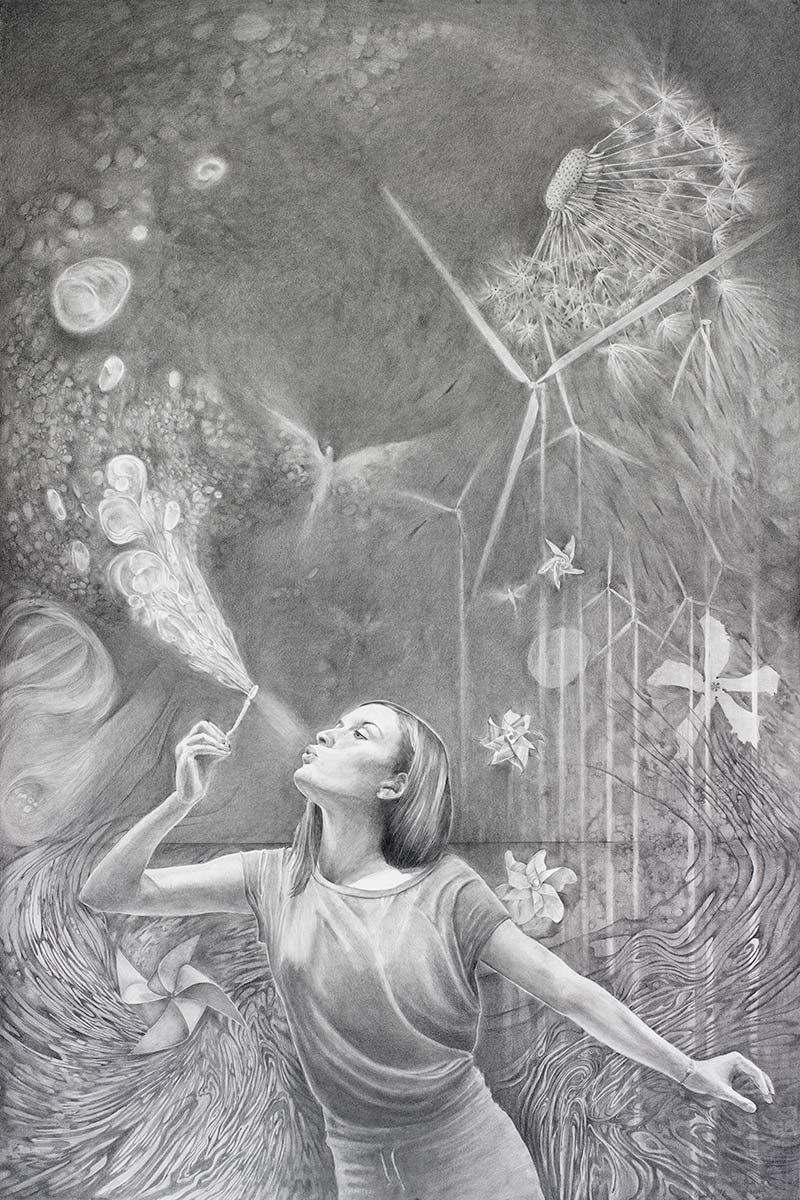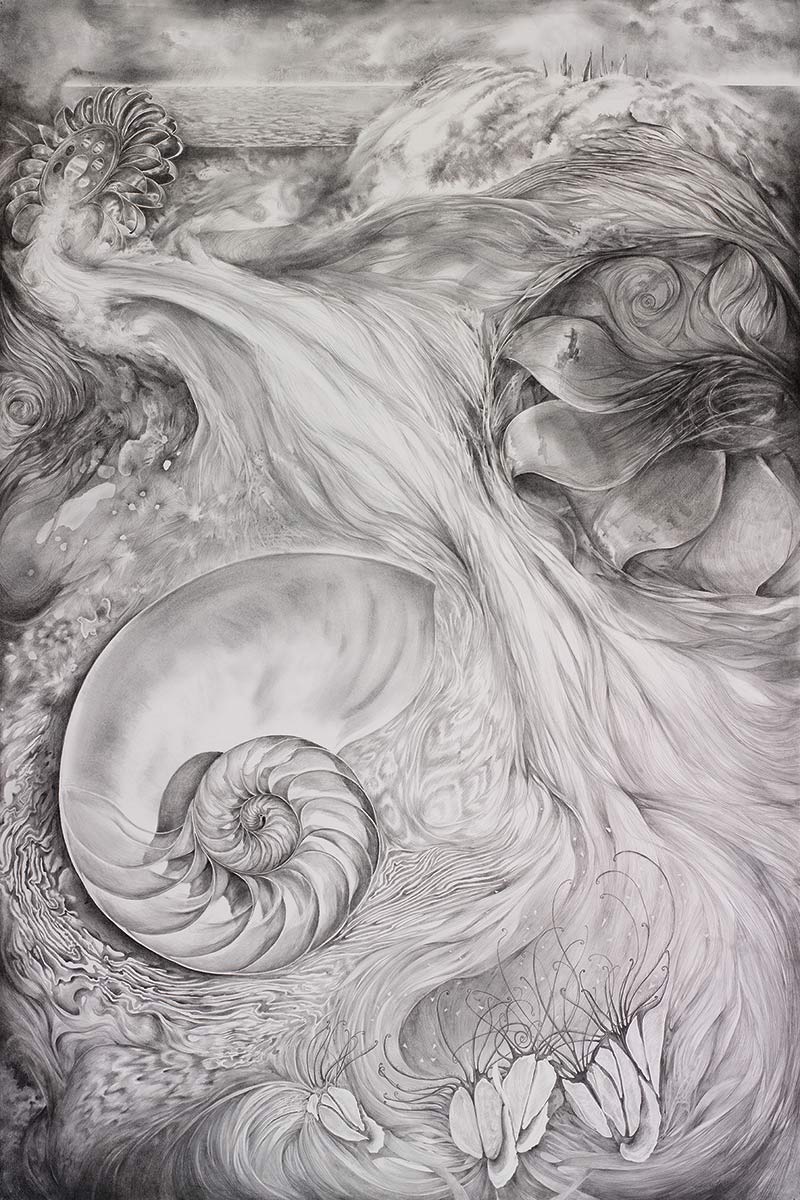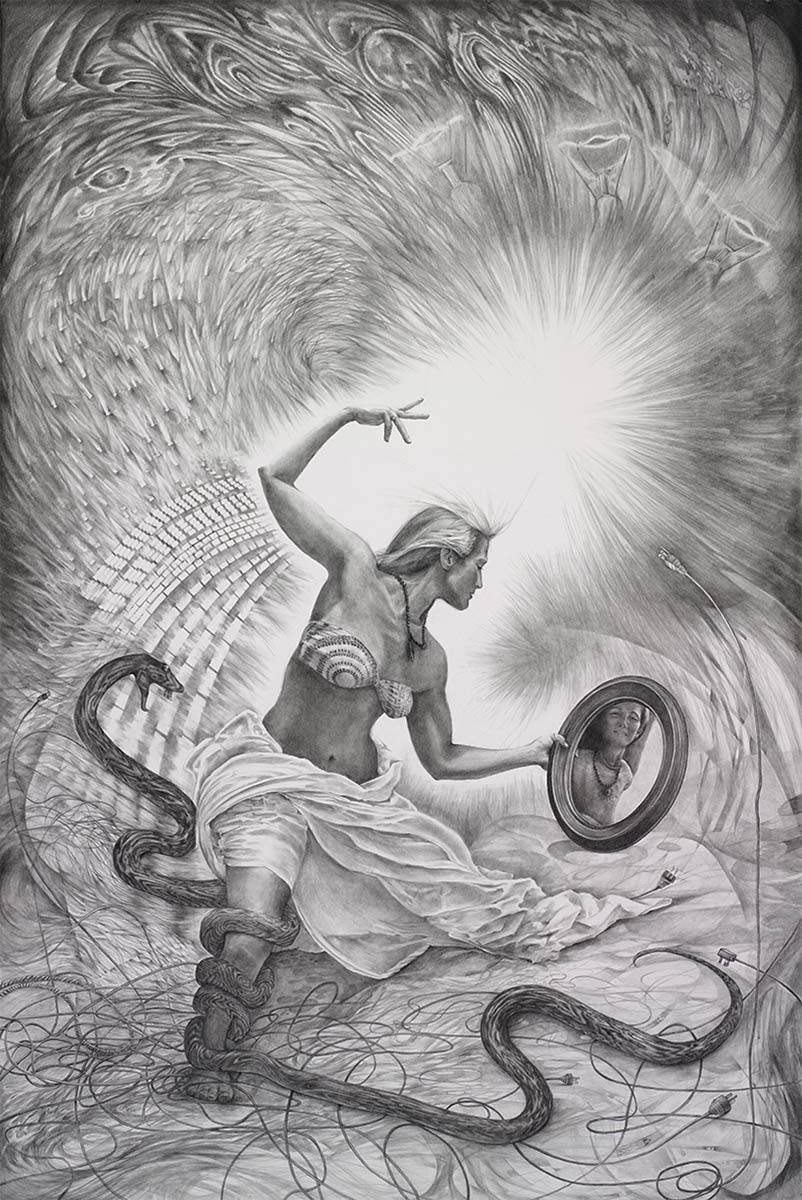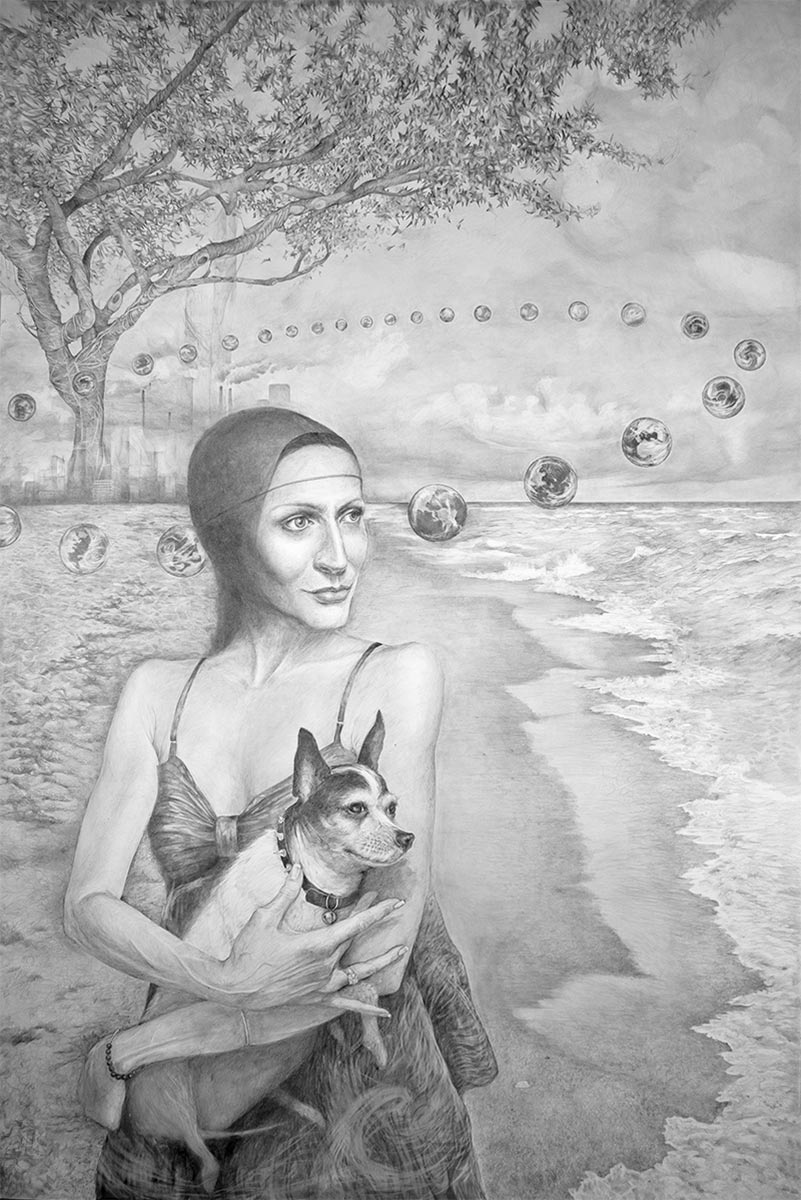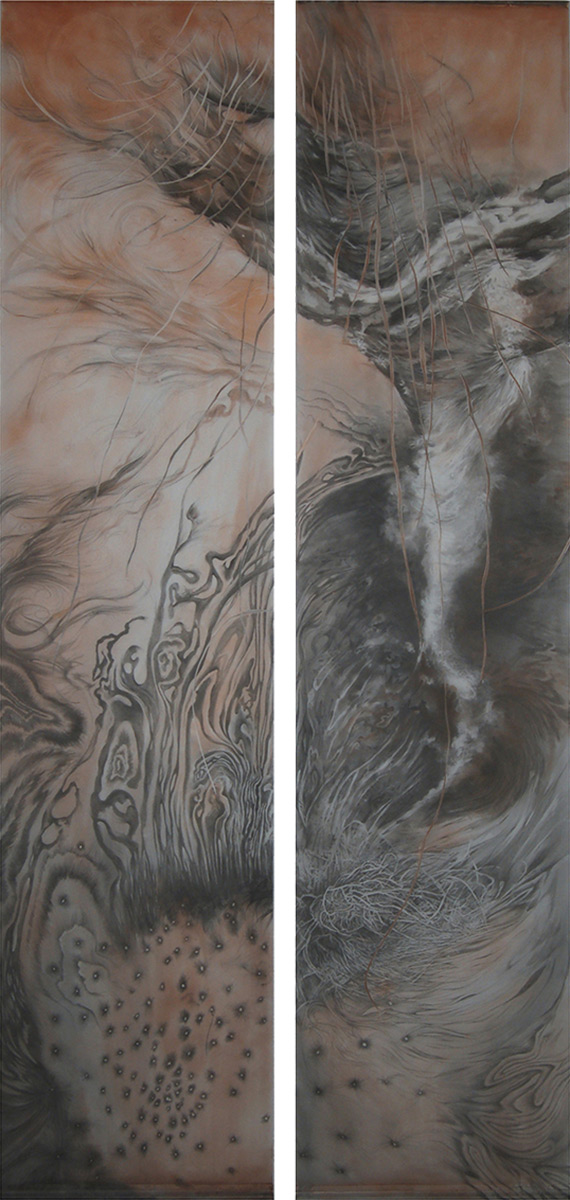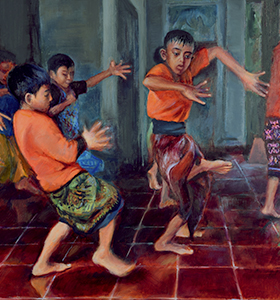Surface Tension
A collection of large drawings about our relationship with fossil fuels and alternative energy resources.
Surface Tension
A collection of large drawings about our relationship
with fossil fuels and alternative energy resources.
Surface Tension
A collection of large drawings about our relationship with fossil fuels and alternative energy resources.
Surface Tension
Surface Tension is a series of seven large-scale graphite drawings addressing climate change and our choices to stop it. I weave a complex tapestry of images to make you think about what is happening to our environment and possible solutions. An oil sheen seeps through the story and our lives — everpresent, dripping, and slithering.
On April 20, 2010, The Deepwater Horizon oil rig exploded. Approximately 4.9 million barrels of oil leaked into the Gulf of Mexico for 87 days, damaging the environment and wildlife. I traveled and lived aboard sailboats, resulting in a deep connection with the ocean. This horrible spill was the catapult for the Surface Tension series.
Surface Tension is the measure of attraction between the surface molecules of a liquid. Oil sheen is the product of the reaction between oil and water. Lighter refined petroleum spreads faster and wider on the water — eventually evaporating. Heavier petroleum spreads slower on water but is more stubborn to remove.
The first of the series is the diptych “Parenthesis (Oil).” While making this drawing, I watched the news daily during the Deepwater Horizon oil spill. Oil sheen drawn in carbon graphite naturally flowed out of my hands. The staring eyes imply that we are responsible for this mess. Smarter, sustainable alternatives to petroleum must be developed.
More drawings naturally followed. “Impetus” supporting hydropower, “Zephyr” for wind power, and “Eos” for solar power. “Gaia” for The Gaia Principle and climate change, “Chaos” for the resulting hurricanes, and “The Vortex Scrolls” screaming the power of the ocean. All drawn in carbon — graphite — leaving a sheen-like oil on water.
I made The Surface Tension series to draw attention to our environmental responsibility and alternative energy. The woven disparate images tell the tale of our reliance on fossil fuels. These large drawings demand attention and invite you to get lost in their imagery.
Surface Tension
Surface Tension is a series of seven large-scale graphite drawings addressing climate change and our choices to stop it. I weave a complex tapestry of images to make you think about what is happening to our environment and possible solutions. An oil sheen seeps through the story and our lives — everpresent, dripping, and slithering.
On April 20, 2010, The Deepwater Horizon oil rig exploded. Approximately 4.9 million barrels of oil leaked into the Gulf of Mexico for 87 days, damaging the environment and wildlife. I traveled and lived aboard sailboats, resulting in a deep connection with the ocean. This horrible spill was the catapult for the Surface Tension series.
Surface Tension is the measure of attraction between the surface molecules of a liquid. Oil sheen is the product of the reaction between oil and water. Lighter refined petroleum spreads faster and wider on the water — eventually evaporating. Heavier petroleum spreads slower on water but is more stubborn to remove.
The first of the series is the diptych “Parenthesis (Oil).” While making this drawing, I watched the news daily during the Deepwater Horizon oil spill. Oil sheen drawn in carbon graphite naturally flowed out of my hands. The staring eyes imply that we are responsible for this mess. Smarter, sustainable alternatives to petroleum must be developed.
More drawings naturally followed. “Impetus” supporting hydropower, “Zephyr” for wind power, and “Eos” for solar power. “Gaia” for The Gaia Principle and climate change, “Chaos” for the resulting hurricanes, and “The Vortex Scrolls” screaming the power of the ocean. All drawn in carbon — graphite — leaving a sheen-like oil on water.
I made The Surface Tension series to draw attention to our environmental responsibility and alternative energy. The woven disparate images tell the tale of our reliance on fossil fuels. These large drawings demand attention and invite you to get lost in their imagery.
Surface Tension
Surface Tension is a series of seven large-scale graphite drawings addressing climate change and our choices to stop it. I weave a complex tapestry of images to make you think about what is happening to our environment and possible solutions. An oil sheen seeps through the story and our lives — everpresent, dripping, and slithering.
On April 20, 2010, The Deepwater Horizon oil rig exploded. Approximately 4.9 million barrels of oil leaked into the Gulf of Mexico for 87 days, damaging the environment and wildlife. I traveled and lived aboard sailboats, resulting in a deep connection with the ocean. This horrible spill was the catapult for the Surface Tension series.
Surface Tension is the measure of attraction between the surface molecules of a liquid. Oil sheen is the product of the reaction between oil and water. Lighter refined petroleum spreads faster and wider on the water — eventually evaporating. Heavier petroleum spreads slower on water but is more stubborn to remove.
The first of the series is the diptych “Parenthesis (Oil).” While making this drawing, I watched the news daily during the Deepwater Horizon oil spill. Oil sheen drawn in carbon graphite naturally flowed out of my hands. The staring eyes imply that we are responsible for this mess. Smarter, sustainable alternatives to petroleum must be developed.
More drawings naturally followed. “Impetus” supporting hydropower, “Zephyr” for wind power, and “Eos” for solar power. “Gaia” for The Gaia Principle and climate change, “Chaos” for the resulting hurricanes, and “The Vortex Scrolls” screaming the power of the ocean. All drawn in carbon — graphite — leaving a sheen-like oil on water.
I made The Surface Tension series to draw attention to our environmental responsibility and alternative energy. The woven disparate images tell the tale of our reliance on fossil fuels. These large drawings demand attention and invite you to get lost in their imagery.

